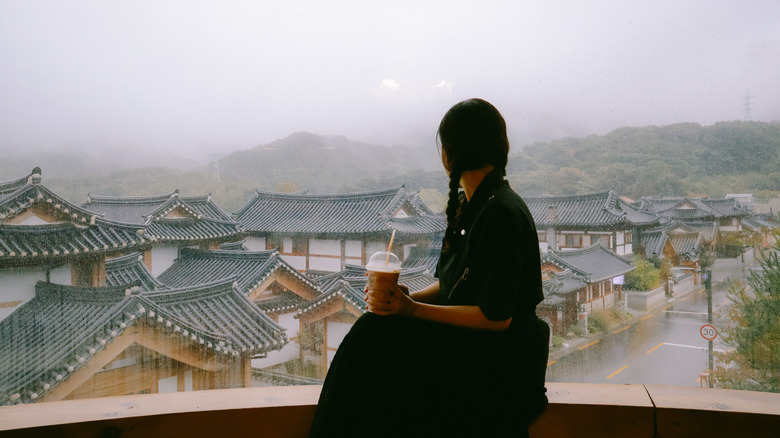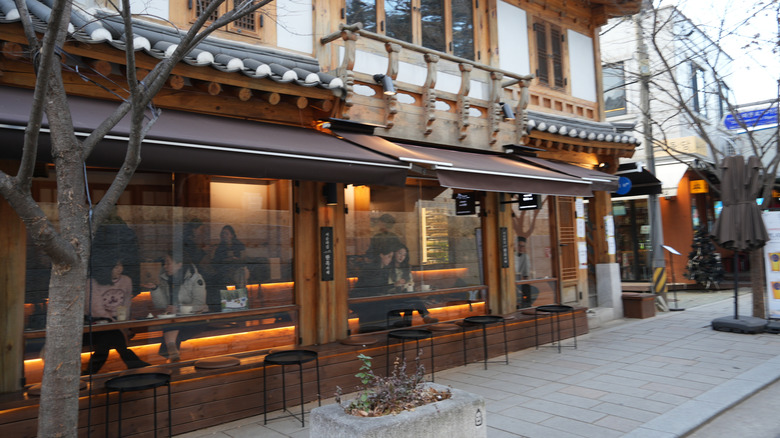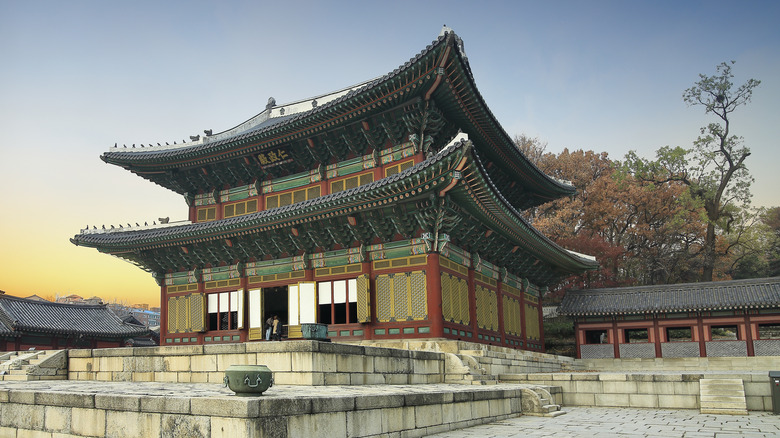The Coziest City In Asia Has Thousands Of Cafes, Storybook Palaces, And Rainy-Day Magic
Bustling metropolises conjure images of sterile, impersonal superstructures of metal and concrete, harsh lighting, and crowded streets. But travel insurance company All Clear set out to prove otherwise, launching comprehensive research in 2024 to find the coziest cities in the world. The search for the encompassing autumnal and winter vibe served as the study's benchmark. Think thick cashmere sweaters, overstuffed couches to sink into, and warm mittens curled around a steaming hot drink.
Cities were ranked according to their "cozy score," which measured the concentration of third places packed into each square mile, particularly focusing on cafes, theaters, cinemas, bookshops, and museums. And because these are spaces ideal to duck into during cold and rainy spells, the amount of precipitation per year was taken into account. UNESCO World Heritage sites also factored into the survey, and rightfully so, given that their historical and cultural presence is inextricably woven into a city's allure and character. And finally, to keep the research relevant and up to date, Instagram was scoured for cities with the most mentions of #cozy hashtags.
European and North American cities dominated the top of the list, but Seoul emerged with the title of Asia's coziest city, ranking 19th on the list. Thrust into the spotlight by UNESCO World Heritage palaces, a dizzying number of coffee shops, and rain falling for almost a quarter of the year, Seoul captures that same cozy spirit of the Danish hygge concept through its own cultural take, jeong: a rooted, complex sense of belonging.
Seoul delivers on cafe culture
Walk along any of Seoul's trendy neighborhoods — hotbeds of indie music, food, art, and thriving nightlife — and you'll undoubtedly stumble across a number of cafes to duck into to escape drab, rainy weather. No surprise there: The Korea Herald reported 100,729 coffee shops in South Korea in 2022, and per New Zealand Trade & Enterprise, Seoul is home to 24,295 of them. Just like European countries with the best cafe cultures, Korea's own cafe culture extends beyond coffee and conversation; it fosters cozy spaces conducive to studying, reading, or working — encouraged, no doubt, by the country's rapid internet connection.
Seoul is a hotspot for themed cafes, which have become quirky refuges from the real world and inclement weather. Looking for a flower cafe, an animal cafe (dogs, cats, and even sheep), a toilet-themed cafe, or one that's hidden behind a pink vending machine? Seoul probably has it, and more. Whether it's artistic inspiration or animal therapy you're after, the diversity of Korean cafes offers spaces suited to one's mood and personality. Commenting on the late and sometimes all-night operating hours of Seoul cafes, a blogger for the intercultural exchange organization CIEE wrote, "This is something that I personally have found a nice luxury. It's so nice to know on a stressful work night I can find myself a cozy cafe or even a cat cafe for some cute kitty therapy."
The nostalgia of Seoul's traditional architecture
Seoul's rainy season arrives in June and lasts through July. Between the pouring rain and humidity from the accompanying summer heat, there's no better time to explore Seoul's cozy cultural offerings. South Korean cities brim with Buddhist temples and palaces, and Seoul proudly hosts several UNESCO World Heritage sites. They're perfect destinations for a dose of culture, nostalgia, nature, and traditional architecture, an antidote to the cutting-edge landscape of the rest of the city. Depending on the weather, you could stroll through the multiple Royal Tombs of the Joseon Dynasty, take in the storybook setting of the 15th-century Changdeokgung Palace Complex and its gardens and plantings, or visit the Confucian shrine of Jongmyo, where spirit tablets honoring the Joseon Dynasty's royal family are housed.
Seoul's traditional bathhouses and saunas are inextricably linked to Korean culture. Meant for relaxation but also for socializing, jjimjilbang ("heated rooms") are cozy retreats where both locals and tourists can get a scrub, bath, steam, or massage. Some take advantage of their all-night hours, spending the night in the bathhouse's modest rooms after using the various services. Think of it less as a high-end spa and more as a spa-and-sauna buffet in a convivial setting, where catching up and unwinding with friends or family is as important as the bathing ritual itself.


